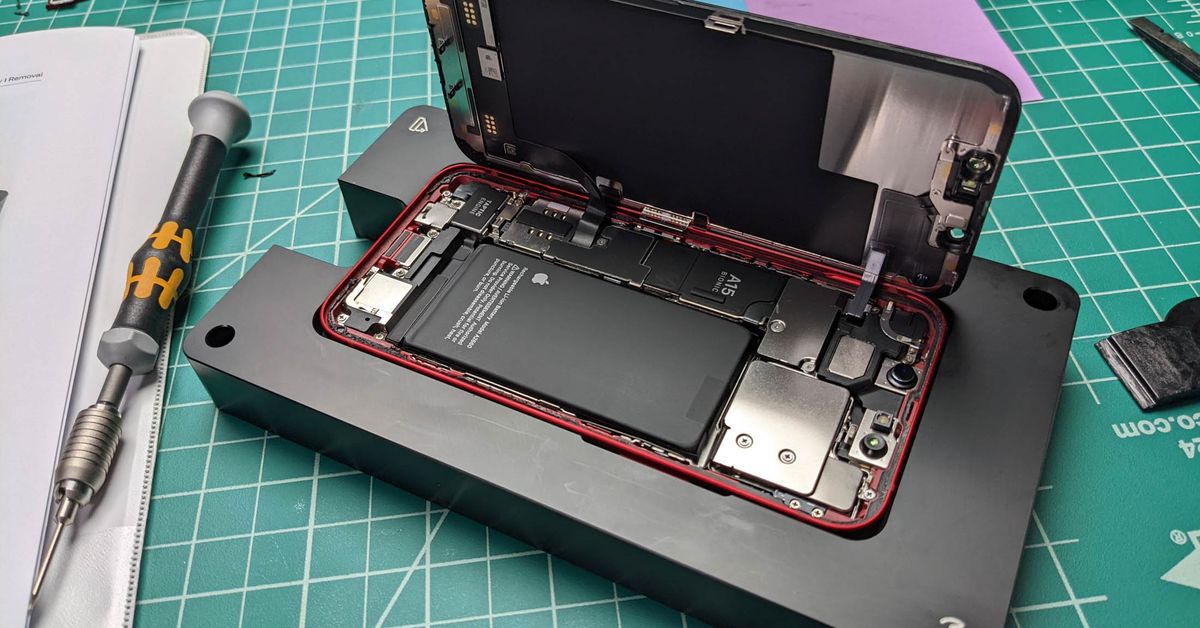One night time per week, Natasha Msweswe and Zanele Madasi go away their kids at dwelling and received all the way down to patrol the streets of Thembokwezi. They return at midnight. That’s doubtlessly very dangerous nevertheless they actually really feel they’ve little various.
“It might be scary nevertheless we want to defend our neighborhood,” talked about Madasi, 31. “We want to make a distinction.”
Thembokwezi is a neighbourhood of Khayelitsha, a sprawling, overcrowded township missed by Desk Mountain that has prolonged been infamous for prime ranges of gang violence, drug abuse and unemployment. South African police are stretched very skinny and so a neighborhood of neighbourhood watch organisations play a key place in combating crime proper right here. Thembokwezi is further prosperous and safer than numerous the rest of the township, and people who dwell proper right here want to maintain it that method.
“We work with the police the truth is … however after we fold our arms as a neighborhood, the criminals will run amok,” talked about Phindile George, the chief of the Thembokwezi neighbourhood watch, which counts 50 volunteers along with Msweswe and Madasi amongst its members.
All through South Africa, tens of 1000’s of individuals are making comparable resolutions. Some prepare, protected reliable electrical power supplies, organise vaccination drives, restore roads, ship defending gear to hospitals or distribute water. Many work practically alone, others in NGOs or for wealthy corporations which might be truly keeping apart big sums for philanthropic work.
Natasha Msweswe, 42, Zanele Madasi, and Bonelela Mqalo, 54, neighbourhood watch members in Khayelitsha. {{Photograph}}: Jason Burke/The Guardian
What all share is an practically full lack of faith in South Africa’s authorities to provide any type of a solution for his or her points. “People have given up on the state as a protector … There’s a big lack of faith. It’s a tragedy,” talked about William Gumede, a revered analyst and tutorial in Johannesburg.
The retreat of the state from frequently life throughout the continent’s most developed nation has widespread penalties, altering the best way wherein people assume, behave and work collectively, significantly in a time of catastrophe. The demise of Archbishop Desmond Tutu, who was practically universally revered, provided a second of paradoxical hope along with grief: reminding many South Africans of what they’ve in frequent after many months the place circumstances have conspired to drive them apart.
Most South Africans have been struggling even sooner than Covid struck, and discontent with the ruling African Nationwide Congress (ANC), in power as a result of the end of the racist, repressive apartheid regime in 1994, has been rising for years. Monetary progress was already slowing even sooner than the nine-year rule of Jacob Zuma, the populist president ousted in 2018 amid widespread corruption allegations.
Whatever the nice intentions of the current president, Cyril Ramaphosa, a former labour activist turned tycoon, there was little to have enjoyable since. The pandemic has delivered a set of crushing blows to the monetary system. Rolling power cuts shut down corporations and factories for weeks on end, whereas most of the people healthcare system has been lethally undermined by mismanagement and corruption.
The federal authorities claims 90,000 South Africans have died from Covid, nevertheless reliable further mortality figures counsel the precise demise toll is between two and three instances elevated. Counting on the definition, unemployment might probably be as extreme as 46.6%.
Police chase and shoot rubber bullets at two suspected looters outside a warehouse storing alcohol in Durban. {{Photograph}}: Guillem Sartorio/AFP/Getty Photos
In July, throughout the worst breakdown in public order for a few years, a complete lot of procuring malls have been looted, warehouses torched and key infrastructure targeted all through a swath of South Africa. A variety of the violence appears to have been instigated by renegade factions all through the ruling get collectively, angered by the jailing of Zuma on contempt of courtroom costs. This shook faith throughout the state too, and a few people turned to vigilante violence.
The neighbourhood watch in Thembokwezi objectives to strengthen official efforts, nevertheless in a rougher part of Khayelitsha a neighborhood has come collectively to confront native authorities. When a strict lockdown to start with of the pandemic in 2020 led to widespread illegal evictions, a complete lot of homeless people occupied a patch of wasteland and constructed properties of tin and picket.
“For years the politicians talked about they’d use this land for properties for us. They did not fulfil their ensures … So we decided to take it over and do it ourselves,” talked about Mabhelandile Twani, 40, a neighborhood chief.
Mabhelandile Twani throughout the Lockdown Village informal settlement in Khayelitsha. {{Photograph}}: Jason Burke/The Guardian
No matter efforts to evict them anew, this neighbourhood has thrived. Now larger than 15,000 people dwell in rows of shacks on the sandy soil. Electrical power is diverted from better-supplied streets shut by. Twani calls it “people’s power”. The neighbourhood is called Lockdown Village.
There are numerous totally different such settlements born of the misery inflicted by Covidin a country unable to afford the pricey help offered to individuals and corporations in Europe, the UK or the US. In Khayelitsha, there are literally settlements known as Sanitiser, Quarantine and Social Distance.
“Now points are so troublesome. We don’t get help from the federal authorities. We try to help ourselves,” talked about Nondwebi Kasba, 73, who helps to run a communal vegetable yard prepare by neighbours in Khayelithsa’s Illitha Park to help the poorest amongst them.
Seven hundred miles to the east, in Graaff-Reinet, a small and conservative metropolis throughout the Karoo desert, there’s moreover a model new wrestle for the basics that the state as quickly as provided. Throughout the townships on Graaff-Reinet’s outskirts, drug sellers steal water tanks from faculties and hawk their contents alongside cannabis and methamphetamines. No one bothers to tell the police, anticipating that they will not come.
Jobs are unusual. So too are the means by which youthful people could obtain the skills to allow them to flee. Khanya Mbaile, a 31-year-old office administrator, hopes to start a espresso retailer and net cafe that may provide a protected meeting place for youthful people throughout the township the place she lives. She has already sourced six laptop techniques from an NGO. “We’re all exhausted nevertheless there is a glimmer of hope,” Mbaile talked about.
Louise Masimela, 58, who runs a neighborhood college for youthful kids in a township merely south of Graaff-Reinet, is one different of South Africa’s perpetual problem-solvers. The earlier journalist has no eternal premises for her faculty college students, scarce water and no funds to pay lecturers. “It’s sturdy, truly sturdy … nevertheless we want to give our children an education which will allow them to exit into the world, not get caught proper right here,” talked about Masimela.
So she has found choices: a church presents an space all through the week, and seven volunteers prepare. Water comes from The Reward of the Givers, now one amongst South Africa’s largest NGOs. Funded fully by private donors, primarily corporations, it distributes 400m rand (£20m) of assist yearly.
In Jap Cape province, the NGO works in hospitals, providing much-needed PPE, medication, oxygen provide models, meals for victims and even goody baggage to encourage healthworkers. Elsewhere throughout the province, one amongst South Africa’s poorest, it has provided seeds, fodder and meals for orphanages, trucked water into poor communities and even dug boreholes.
“There are a number of fine people in authorities who want to do the suitable issue … and I can see points altering. It’s not giant change nevertheless people want to kind issues,” talked about Dr Imtiaz Sooliman, the NGO’s founder. “We’ve now to fill the outlet nevertheless by filling the outlet we’re inserting on stress. Individuals are asking why we’re doing what the federal authorities must do.”
Newest native elections have been seen by many analysts as a set off for optimism. The ANC was punished by voters, dropping 8.3% of its vote share and barely under 1,000 council seats. The get collectively was compelled to share power in plenty of small cities – along with Graaff-Reinet – and its grasp on cities equivalent to Johannesburg and Pretoria slipped further.
In a variety of cities, native communities joined collectively to create political alternate choices that incessantly gained help. “A great deal of that’s hopeful … It displays a need for a model new inclusive enterprise,” talked about Gumede.
Many see a necessity for political decisions that offer an real totally different to the ANC however moreover escape the toxic legacy of South Africa’s traumatic earlier. The dominance of the ANC at nationwide stage means essential political battles occur all through the organisation.
Protests in opposition to Covid restrictions in Cape Metropolis in October. {{Photograph}}: Rodger Bosch/AFP/Getty Photos
Judith February, an analyst, wrote for the Daily Maverick website in December: “From the riot in July to the shambles which is our intelligence corporations, [from] an rising … anti-vaxx place to a dedication to coal, the tensions all through the get collectively are … at odds with the nation’s best pursuits. Ramaphosa’s grip on power appears reluctant and tenuous.”
Farmers say the help provided by rain that has broken a five-year drought has helped the agricultural sector offset losses elsewhere, nevertheless the essential factor commerce of tourism has been badly hit by the pandemic, with massive losses of earnings and jobs.
“It has been a disaster, an entire disaster,” talked about 59-year-old Kobus Potgieter, who runs a farm guesthouse outside the town of Oudtshoorn, on the spectacular R62 road that was as quickly as busy with vacationers. After 16 years he is pondering of closing for good, or a minimum of downscaling.
Kobus Potgieter, 59, a guesthouse proprietor and farmer. {{Photograph}}: Jason Burke/The Guardian
In Franschhoek, a centre of good consuming and wine-making amid mountains and vineyards an hour’s drive from Cape Metropolis, the absence of overseas company has compelled excessive consuming locations to close, inns to shut for months, and led to the shortage of 1000’s of jobs. As elsewhere, the nationwide vaccination advertising and marketing marketing campaign has lacked property, offering minimal options for native people to get jabbed and practically no information which will help overcome very widespread hesitancy.
To steer would-be company that the town was protected, Franschhoek’s vacationer office sought to organise its private vaccination drive, supported by crowdfunding, giant corporations and the native administration. By November, 85% of those working throughout the hospitality commerce have been jabbed. Nonetheless just because the vacationers began returning, the identification of the Omicron variant in South Africa launched new journey bans. “It was devastating,” talked about Ruth McCourt, a promoting supervisor.
Farm labourers are inclined to newly planted vines on the Haute Cabrière winery property. {{Photograph}}: David Silverman/Getty Photos
In a country with a variety of the best ranges of inequality on the earth, some have been ready to local weather South Africa’s monetary and political storm larger than others. Even its residents admit Franschhoek is a “little little bit of a bubble”. Khayelitsha should not be, and its half a million inhabitants have little security from the forces buffeting the nation.
“Will most likely be a bitter, black Christmas,” talked about Twani, the neighborhood chief in Lockdown Village, interviewed in mid-December. “My fear is that proper right here in South Africa we dwell in a timebomb. Individuals are offended … Lastly, one thing can happen.”


